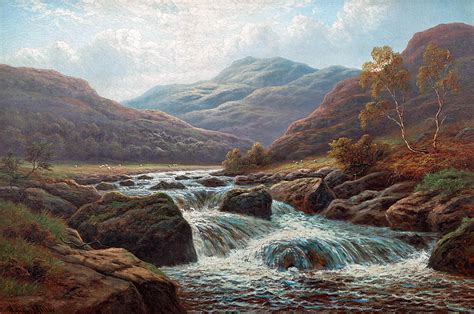A Quote by Herbert Spencer
In science the important thing is to modify and change one's ideas as science advances.
Related Quotes
I often compare open source to science. To where science took this whole notion of developing ideas in the open and improving on other peoples' ideas and making it into what science is today and the incredible advances that we have had. And I compare that to witchcraft and alchemy, where openness was something you didn't do.
The life and soul of science is its practical application, and just as the great advances in mathematics have been made through the desire of discovering the solution of problems which were of a highly practical kind in mathematical science, so in physical science many of the greatest advances that have been made from the beginning of the world to the present time have been made in the earnest desire to turn the knowledge of the properties of matter to some purpose useful to mankind.
Science fiction is the most important literature in the history of the world, because it's the history of ideas, the history of our civilization birthing itself. ...Science fiction is central to everything we've ever done, and people who make fun of science fiction writers don't know what they're talking about.
The impossibility of separating the nomenclature of a science from the science itself, is owing to this, that every branch of physical science must consist of three things; the series of facts which are the objects of the science, the ideas which represent these facts, and the words by which these ideas are expressed. Like three impressions of the same seal, the word ought to produce the idea, and the idea to be a picture of the fact.
The difficulty in today's world is our technology and science has outrun our theological advances. The reason for that is in technology and science, we have had the courage to ask the single question that theology has been afraid to ask: "Is it possible that there's something I don't know about this, the knowing of which would change everything?"
"The further art advances the closer it approaches science," said Leonardo da Vinci, painter, sculptor, architect, engineer, and inventor of the wheelbarrow, and other useful instruments from the speaking tube to a mechanically gyp-proof whore-house, "the further science advances the closer it approaches art."









































